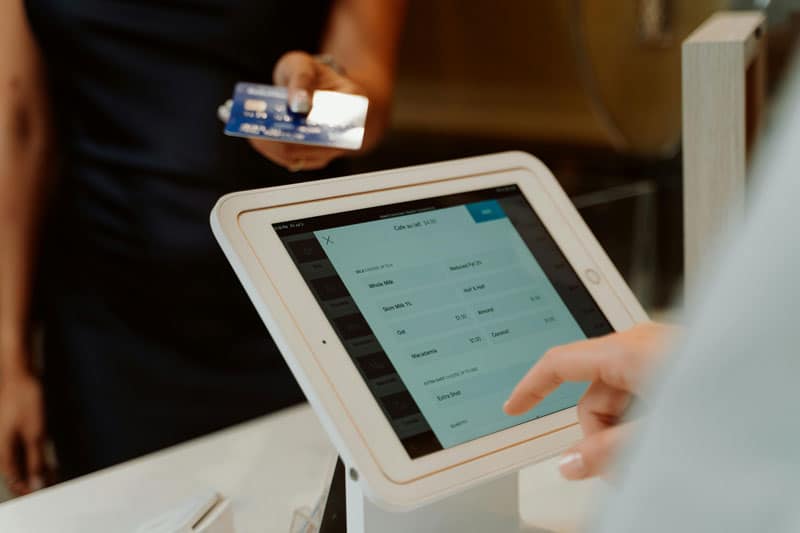For most small businesses, the off-the-shelf point-of-sale (POS) systems have everything they need to process transactions and keep track of sales. But with high-risk merchants, the stakes change. These businesses have unique compliance requirements, chargeback rates, and scrutiny levels from merchant service providers. As such, they often need more than an industry-standard POS to get by. Knowing how to build a POS to address high-risk concerns is vital when it comes to scalability, chargeback mitigation, and fraud and regulatory compliance. While building a custom POS system may cost more upfront, it saves thousands in the long run in operational friction with precision payment and integration control.
Why Off-the-Shelf POS Systems Don’t Work for High-Risk Merchants
Mainstream POS providers like Square, Toast or Clover work well for low-risk businesses like coffee shops or boutiques. At the same time, they often deny their accounts or put them in deactivated status for industries like CBD, firearms, nutraceuticals, or debt relief. Even if approved, high-risk merchants find their accounts frozen overnight, funds held and no access, and transaction processes limited[1]. Off-the-shelf systems rarely have the fraud detection systems, compliance reporting or integrations that allow for flexibility within high-risk verticals. Therefore, for high-risk merchants, learning how to build or commission a custom POS system is not just an upgrade—it’s a matter of survival.
How to Build a POS System for High-Risk Merchants
The first step in learning how to build a POS system involves pinpointing needs from the ground up. High-risk merchants would benefit from credit card processing options, fraud detection capabilities, settlement rule flexibility, and integrations with e-commerce platforms. Learning how to build a POS involves determining the hardware involved and then either developing custom software or licensing existing options while ensuring integration with the merchant service providers who accept high-risk accounts. This isn’t about creating a tool to swipe cards—it’s about providing an ecosystem that facilitates customer ease while meeting strict compliance requirements[2].
Merchant Services Provider Involvement in Custom POS Development
No POS system can operate without a merchant services provider. These are the companies that execute transaction authorization, transaction settlement, and chargeback execution. For the high-risk merchant, choosing the right provider is as essential as having a robust POS system. The willingness of the provider to underwrite merchant accounts associated with high-risk business operations will mean the difference between operating for 24 hours or months. Furthermore, fee structures and fraud detection tools all contribute to a custom system’s success—when learning how to build a POS, merchants must integrate their software and hardware into processors that can support the industry-standard. This keeps everything stable while avoiding devastating account terminations that plague many businesses in heavily regulated niches[3].
Balancing Costs vs Control in Custom POS Systems
Operating a custom POS system will inevitably cost more than off-the-shelf options. However, it provides control over every nuance for specific implementations. Merchants can customize features to ensure direct operation integrations rather than relying on third-party applications that may limit growth potential down the line. Whether balance aligns between costs vs control depends on industry selection; for CBD or firearms merchants, investing up front ensures their payment ability long-term; for debt relief or subscription services, control over individual recurring billing rules prevents chargebacks and expensive disputes down the line.
How High-Risk Merchants Use Custom POS Systems for Growth
Custom POS systems are not just defensive—they enable growth opportunities too! With loyalty programs integrated, special payment flows, and omnichannel opportunities allow for active revenue generation, all while staying compliant. For example, a CBD merchant builds its ability to apply loyalty programs into its custom POS, while firearm retailers need separate, compliance-reduced reporting per transaction, audit-ready. For these merchants seeking growth options from a reputation standpoint, these values set them apart regardless of payment processing limitations[4].
The Future of Custom POS Systems for High-Risk Industries
Looking to the future, custom systems will have blockchain capabilities, artificial intelligence credit card processing support, and biometric authentication for enhanced fraud detection immediacy and reduced settlement opportunities. Merchant service providers will also provide APIs down the line to support other global and merchant processing networks, thanks to business inquiries learned today; knowing how to build a POS supports high-risk merchants today, and being able to transition down the line without restrictions put in place by off-the-shelf systems catering only to low-risk entities.
Six Critical Components of a Custom POS System
Hardware Flexibility
Custom systems should offer terminals, card readers or devices common through different payment facilitation opportunities. Hardware flexibility ensures scalable environments.
Software Customization
Off-the-shelf POS systems don't often consider industry-specific niches software-wise. Custom systems allow merchants to leverage tools considered for compliance reporting and fraud analysis.
Integration with Merchant Service Providers
A POS system needs to connect seamlessly with processors who accept high-risk industries. Without this integration ability, frictions arise.
Fraud Detection Tools
For high-risk merchants, advanced fraud prevention is critical. AVS checks, CVV verification and subsequent reviews of unique spending patterns via AI help keep fraudulent use at bay.
Reporting and Analytics
Custom systems offer insights into disputes, compliance evaluation and general reporting so that high-risk merchants can reduce costs and evaluate operations better.
Compliance and Security
Custom-created compliance ensures nothing falls between the cracks and that entities are PCI DSS compliant or prepared for audits tied to specific industries.
FAQs
Q: Why do high-risk merchants need custom POS systems?
A: Off-the-shelf systems either deny businesses or disable them. Custom systems provide compliance levels not found elsewhere.
Q: How do merchant service providers affect POS performance?
A: Merchant service providers authorize payments, manage settlements and engage with disputes. High-risk merchants must work with providers that specialize in their industries to be reliable.
Q: What does it cost to build a custom POS system?
A: Costs vary but are generally higher than off-the-shelf options—but the control and reliability achieved often outweigh upfront expenditures.
Q: Can custom POS systems integrate with e-commerce platforms?
A: Yes! Many high-risk merchants have built integrations directly with online stores, loyalty programs and apps for omnichannel opportunities[5].
Q: What technologies will shape future POS systems?
A: AI-driven fraud detection systems, blockchain used for settlement, and biometric authentication are expected standards in enterprise-level and high-risk integrated POS systems.
Sources
- CardFellow. “How to Build a POS System.” Accessed August 2025.
- PCI Security Standards Council. “PCI DSS and POS Systems.” Accessed August 2025.
- PYMNTS. “Custom POS Systems and Industry Innovation.” Accessed August 2025.
- Investopedia. “Point of Sale (POS).” Accessed August 2025.
- Visa. “Merchant Services Integration Resources.” Accessed August 2025.











